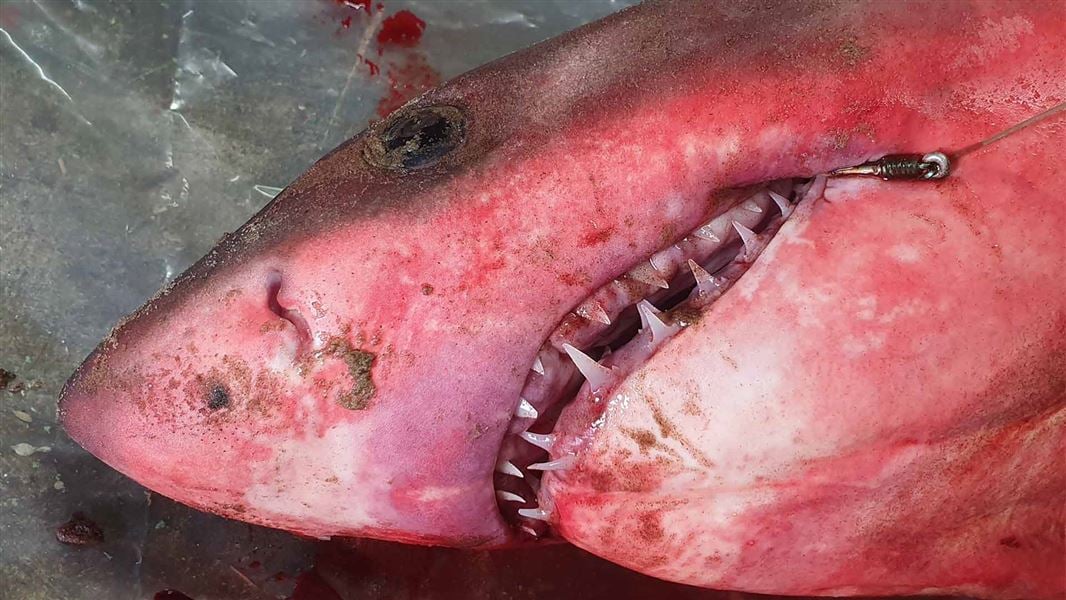
Archived content: This media release was accurate on the date of publication.
Introduction
Shark scientists are concerned about the number of juvenile ururoa/great white sharks that have been captured by recreational fishers recently, particularly in Northland.Date: 17 March 2020
DOC says 12 juvenile white shark captures have been recorded since March last year around the upper North Island.
DOC’s shark expert Clinton Duffy says five of the captures were recorded on Ninety Mile beach, with the most recent capture last week.
“The number of juveniles being caught on fishing lines is a concern because these sharks are endangered, and it means they won’t grow to maturity and contribute to the breeding population,” Duffy says.
Recreational fishers using kontiki and ‘torpedoes’ to set longlines off beaches, were responsible for at least seven of the shark fatalities recorded.
“We want fishers to understand that white sharks are protected and should be released in the water immediately. They shouldn’t be hauled up the beach or dragged backwards by their tails because that will cause further injury.”
There are estimated to be only around 750 adult great white sharks in New Zealand and eastern Australian waters (estimate range between 470 to 1,030 adult individuals).
They are vulnerable to a variety of fishing methods, including trawls, set nets and longlines and have even been found drowned in crayfish pots.
In several instances, the sharks were quickly released and probably survived capture. In other cases the carcasses were found discarded on beaches, in some cases, they had been butchered or had their jaws removed, and one carcass was finned before DOC staff were able to recover it.
While it is not illegal to accidentally catch or even kill a great white shark all fishers are required to release it immediately and report the event to DOC or a Fisheries Officer as soon as possible.
It is illegal to retain any part of the shark for food or as a memento or trophy, even if it is dead.
People should report sightings of great white sharks to 0800 DOC HOT (0800 36 42 68) or send a photo to the Sharks Mailbox: sharks@doc.govt.nz
Reporting sightings (recent or historical) assists research on the species, particularly understanding when and where they occur in different parts of the country.
Background information
- A fisher’s guide: New Zealand’s protected fish and reptiles (PDF, 6,000K)
- A national assessment of the status of White Sharks
Contact
For media enquiries contact:
Email: media@doc.govt.nz